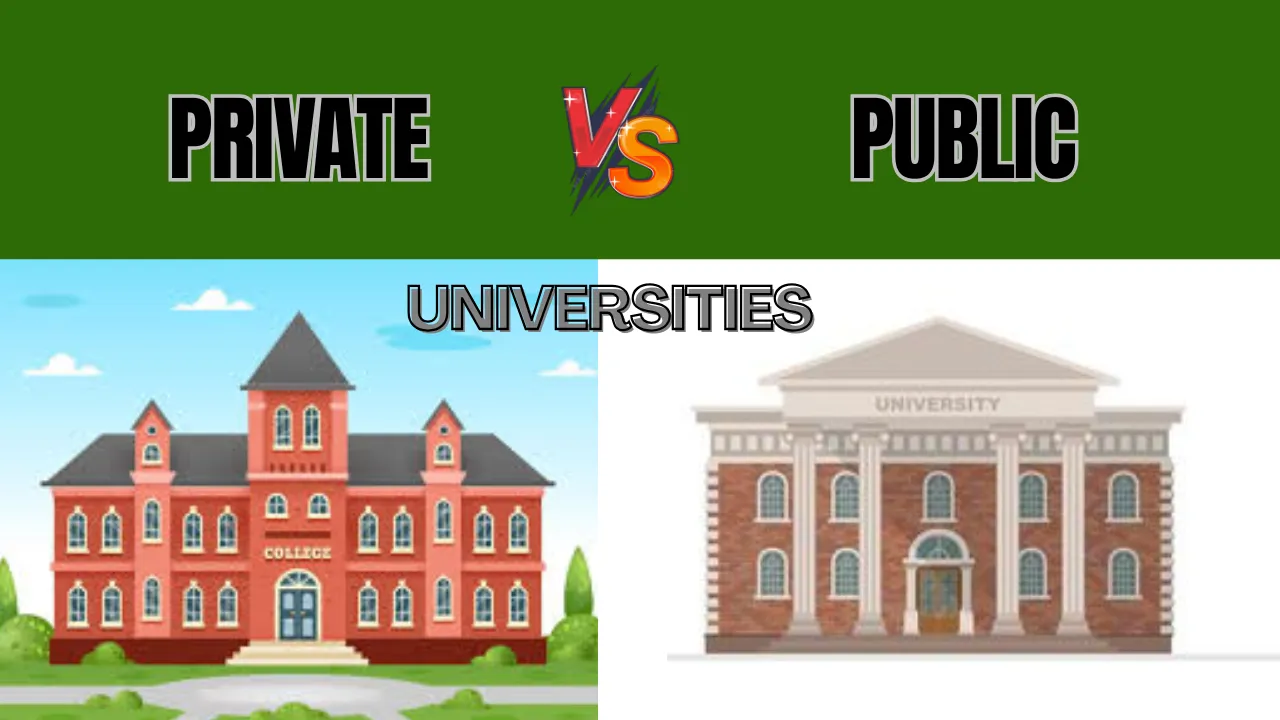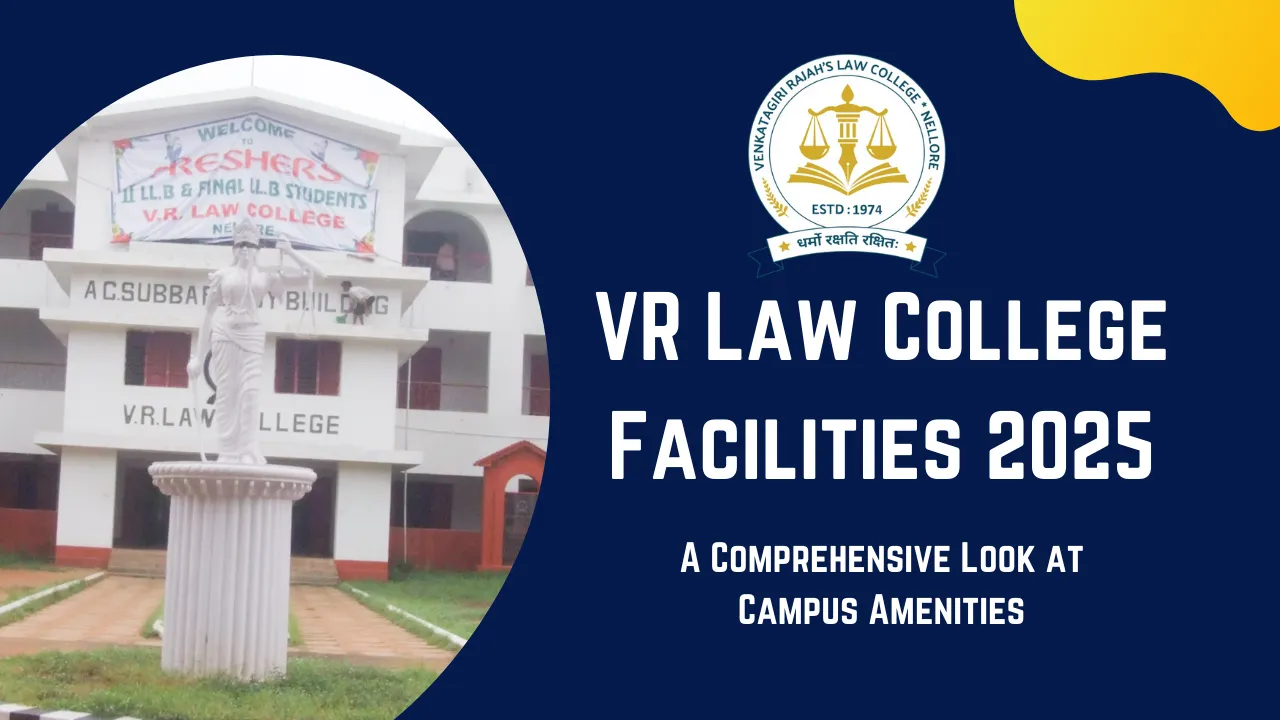Private vs. Public Universities: Private vs. Public Universities is a common debate among students planning their higher education. Choosing between these two options can be confusing, especially when your future career is involved. Both have their own strengths and weaknesses that may affect your job opportunities, networking, and long-term growth.
This article will explore the key differences between private vs. public universities and how they can shape your professional journey. From tuition fees and campus life to reputation and alumni networks, we’ll break down each factor to help you make an informed choice about your career path.
Understanding the Key Differences
The major difference between private vs. public universities lies in how they are funded and managed. Public universities are supported by the government and often offer lower tuition, especially for in-state students. Private universities, on the other hand, rely on tuition fees, private donations, and endowments, which often makes them more expensive.
These funding models influence many aspects of the university experience—class size, faculty quality, infrastructure, and resources. All these elements can play a big role in your career development, depending on what field you want to pursue.
Tuition and Financial Aid
When comparing private vs. public universities, cost is usually the first concern. Public universities tend to be more affordable, especially for residents of the state. This allows students to graduate with less debt, giving them more freedom in choosing career options without the pressure of high loan repayments.
However, private universities often offer generous scholarships and financial aid packages. While their tuition is higher, many students actually pay less after financial aid is applied. This makes it important to look beyond just the sticker price.
Academic Reputation and Quality
Private universities are often seen as more prestigious. Many well-known private institutions rank higher in national and global rankings. They may have stronger academic programs, better faculty, and more funding for research. This reputation can make a difference in competitive job markets.
Public universities also have top-notch programs, especially in fields like engineering, business, and agriculture. Some state schools are globally recognized and have excellent research output. The quality of education depends more on the specific program and not just the type of university.
Class Sizes and Student Support
Another key point in the private vs. public universities discussion is the classroom environment. Private universities typically offer smaller class sizes. This means more one-on-one attention from professors, better access to academic advisors, and a more personalized learning experience.
Public universities often have larger student populations, which can lead to big lecture halls and less direct contact with faculty. However, they also offer a wide range of student services and resources that support academic and career growth.
Career Services and Networking
Career support is essential when planning for life after college. Private universities usually have strong alumni networks, which can be a huge advantage in finding internships, jobs, and mentorship opportunities. Many private institutions also partner with leading companies to help students get hands-on experience during their studies.
Public universities also offer career services, and some have impressive alumni connections. These services might not be as personal due to the larger student body, but they can still be effective if the student takes initiative and uses them well.
Campus Life and Student Experience
The college experience is not just about classes. It also includes campus life, extracurricular activities, and social development. Public universities often have more diverse student bodies and a wide range of clubs and activities. Their larger campuses also mean more events, facilities, and chances to meet people from different backgrounds.
Private universities may offer a tighter-knit community, with more focused programs and personal attention. This can create a close, supportive environment that helps students stay engaged and perform well.
Employment Outcomes
When it comes to job placement and starting salaries, the gap between private vs. public universities is narrowing. Many employers now value skills, internships, and real-world experience more than where a degree came from. That said, graduates from top private universities often have an edge in competitive industries like law, finance, and tech.
Public university grads can also do very well, especially if they take advantage of on-campus recruiting, internships, and strong academic performance. The key is how a student uses the resources and opportunities available, not just the school name on the degree.
Key Advantages of Each University Type
Benefits of Private Universities:
- Strong academic reputation
- Smaller class sizes
- Personalized student support
- Powerful alumni networks
- Generous financial aid for some students
Benefits of Public Universities:
- Lower tuition for in-state students
- Diverse and large student population
- Wide variety of programs and majors
- Strong research and funding in key areas
- Active campus life with more student groups
Which is Better for Your Career?
There’s no one-size-fits-all answer in the private vs. public universities debate. The right choice depends on your career goals, financial situation, and personal preferences. If prestige and networking are key for your industry, a private university might give you an edge. If you want quality education without a heavy financial burden, a public university could be your best path.
Look into the specific program you’re interested in. Check the job placement rate, internship opportunities, and success stories of alumni. Sometimes, a public university may outperform a private one in certain fields.
FAQs
Is a degree from a private university more valuable?
Not always. The value of a degree depends on the program quality, the student’s performance, and how they use opportunities.
Do private universities offer better job placement?
Some do, especially elite ones, due to strong networks. But many public schools also have excellent job placement services.
Are public universities less challenging?
No. Public universities can be very competitive, especially in popular programs like engineering or medicine.
Can you get scholarships at public universities?
Yes, many public universities offer merit-based and need-based scholarships.
Which type of university is better for graduate studies?
It depends on the field. Both private and public universities offer strong graduate programs. Research and faculty expertise matter more.
Final Thought
Choosing between private vs. public universities is a big decision that can impact your future career. But it’s not just about the name or cost—it’s about finding the best fit for your goals, strengths, and learning style. Take time to research, visit campuses, and talk to current students if possible. Your future is worth the effort.
Share your thoughts in the comments or explore more articles about career planning and education. You can also check your career horoscope to see what path suits you best!












